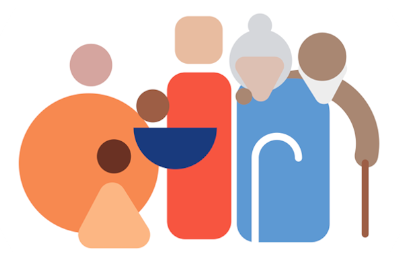According to consensus statement prepared jointly by the Heart Rhythm Society and the European Heart Rhythm Association, more than 800,000 patients in Europe have Cardiovascular Implantable Electronic Devices (CIEDs) for the treatment or secondary prevention of cardiac arrhythmias. In addition, the number of follow-up visits for patients with an implanted cardiac device exceeds 5.8 million visits each year, and that number will continue to increase as more devices are implanted. The exponential growth rate of cardiac device implantation calls for new methods of long-term surveillance with a view to optimizing patient safety and care, alleviating the burden of caregivers, and lowering health care costs through ICT support.
Due to their limited processing capabilities restricted by their size, CIEDs need to be supported with software running on the data centers. Currently, the data center processing is standalone with their custom software and proprietary interfaces. iCARDEA exposes CIED data through standard interfaces to develop an intelligent platform to semi-automate the follow-up of CIED patients with context-aware, adaptable computer interpretable clinical guideline models. The computer interpretable guideline models are designed from re-usable building blocks to facilitate personalization of the patient care and follow-up workflow. The CIED data are exposed through standard interfaces based on the HL7, ISO/IEEE 11073 standards and the IHE IDCO Profile. EHR interoperability is achieved by exposing legacy EHR systems through standard HL7 CDA interfaces so that information about patients’ medical history such as the non-cardiac conditions denoting contraindications to the proposed therapies can be obtained from the patient EHR data and used in the clinical follow-up workflow. The clinical guidelines automates the risk assessment and hence support medical professionals by automatically assessing the situations and generating alarms. The patients are empowered with Personal Health Records (PHR) to enable informed and responsible participation in the process and for their education. iCARDEA platform provides comprehensive security and privacy mechanisms and has been validated in Salzburg Clinic in Austria with CIEDs from two major vendors, namely Medtronic and St. Jude.
In addition to coordinating the project, SRDC Team was the main R&D partner of the project. Our achievements can be summarized as follows:
- Development of the iCARDEA CIED based adaptive care planner based on clinical guidelines
- Development of EHR Interoperability Layer- Code System Mapping API
- Development of Security and Privacy mechanisms including consent Management System
- Integration of iCARDEA components
- 2 PhD, 2 Msc thesis and several publications
| 1. | SRDC | Turkey |
| 2. | OFFIS e.V. | Germany |
| 3. | Salzburg Research Forschungsgesellschaft m.b.H | Austria |
| 4. | Foundation for Research and Technology Hellas – Institute of Computer Science | Greece |
| 5. | Salzburger Landeskliniken Betriebsges m.b.H | Austria |
| 6. | St. Jude Medical Medizintechnik Ges m.b.H | Austria |
| 7. | Medtronic Ibérica | Spain |
| 8. | Hospital Clinic I Provincial de Barcelona | Spain |









